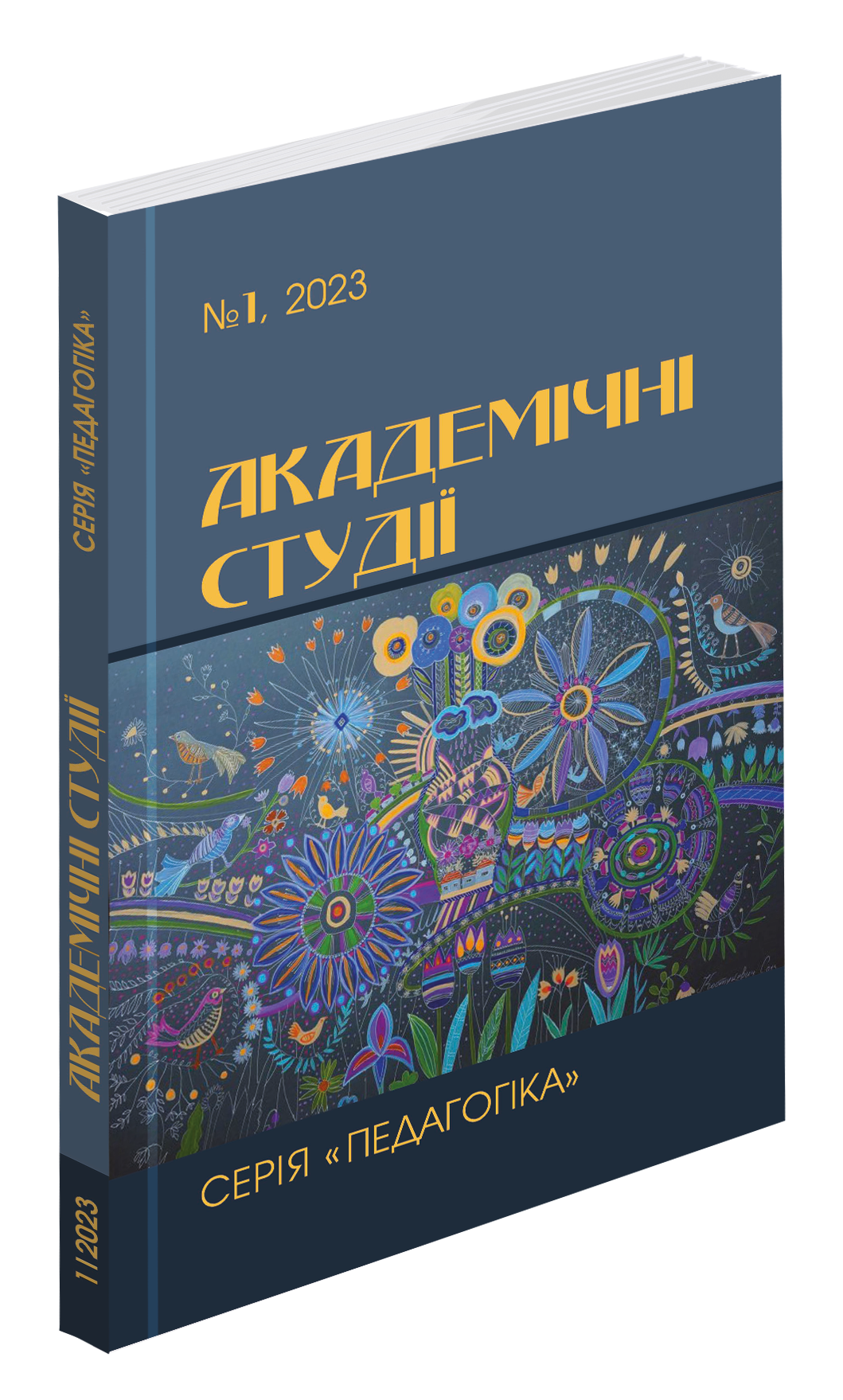Abstract
The modern process of increasing the efficiency of the provision of educational services involves a purposeful system of interconnection of educational and research activities of students of higher education. Education with the help of active inclusion of students of higher education in research work ensures the development of a creative personality and the formation of self-regulation of one’s own activities. Graduates of higher education institutions should be able to analyze, compare, qualify, generalize, quickly find the necessary information, think logically, use new scientific knowledge in their professional activities, plan, organize and conduct research activities. In this connection, the development of means, mechanisms, technologies, and approaches to the organization of effective research activity of higher education students becomes relevant. The analysis of classical and advanced scientific approaches to the process of formation of research competence among students of higher education at the Drugs Technology Department of the National University of Pharmacy allowed to develop a model of the methodology and assessment of the formation of educational and research competence in the process of studying the educational component «Pharmacy-based Technology of Drugs». An important feature of the organization of research work of students of higher education is the introduction of elements of research work during laboratory and practical classes. The article presents the experience of conducting classes on the preparation of ointments using classic pharmacy technology and improved (using modern equipment). In order to compare the efficiency of using modern equipment, students of higher education in the class produced emulsion ointment according to the classic technology of manufacturing extemporaneous dosage forms and using the modern homogenizer «Silent Crusher M». During the analysis of the results of the educational and experimental research using the example of the lesson «Preparation of ointments», students of higher education were able to work out the order of technological operations, parameters and method of mixing ointments depending on the type of dispersion system, compare the quality of ointments made by classical and advanced technologies. The introduction of fragments of scientific and research work into the structure of classes will help students of higher education to increase the level of development of motivational, cognitive, activity and personal components of educational and research activities. The results of the research can be used in the organization of classes on the educational component «Pharmacy-based Technology of Drugs», as well as in improving the methodical training of teachers.
References
Вимоги до виготовлення нестерильних лікарських засобів в умовах аптек : Настанова СТ-НМОЗУ 42-4.5:2015, затверджені Наказом МОЗ України № 398 від 01.07.15. Київ, 2015. 109 с. URL: http://www.moz.gov.ua/docfiles/dn_20150701_0398_dod 1_ns.pdf (дата звернення: 12.01.2023).
Методологія викладання аптечної технології ліків : навч.-метод. посіб. О. І. Тихонов та ін.; за ред. О. І. Тихонова і Т. Г. Ярних. 2-ге вид., стереотип. Харків: НФаУ, 2015. 232 с.
Положення про навчально-методичний комплекс дисциплін у Національному фармацевтичному університеті: ПОЛ А2.5-25-124 / розроб.: Т. В. Крутських, А. Б. Ольховська. Харків, 2020. 51 с.
Про освіту : Закон України № 1556-VІІ від 01.07.2014. Верховна Рада України. URL: https://zakon.rada.gov.ua/laws/show/1556-18 (дата звернення: 11.12.2022).
Ставицький А. В. Розвиток вищої освіти, заснованої на дослідженнях. Вища освіта України. 2013.№ 3 (додаток 2). С. 27–30.
Afzal Sayed Munna, Md Abul Kalam. Teaching and learning process to enhance teaching effectiveness: a literature review. International Journal of Humanities and Innovation (IJHI). 2021. Vol. 4, № 1. Р. 1–4.
An introduction to education research methods: exploring the learning journey of pre-service teachers in atransnational programme. White Sonia et al. Asia-Pacific Journal of Teacher Education, 2015. Vol. 44(1). P. 1–14.
Melnik G. M., Yarnykh T. G., Rukhmakova O. A. Comparative analysis of pharmacopeial requirements to extemporaneous medicines. Journal of Global Pharma Technology. 2020. Vol. 12, Issue 01 (Suppl.). Р. 301–306.
Melnik G. M., Yarnykh T. G., Rukhmakova O. A. Pharmacopaine aspects of extemporaneous technology of soft medicines and suppositories. Journal of Advanced Pharmacy Education & Research. 2020. Vol. 10, Issue 1. Р. 60–65.
Nouri A. I., Hassali M. A., Hashmi F. K. Contribution of pharmacy education to pharmaceutical research and development: Critical insights from educators. Perspectives in public health. 2020. Vol. 140, № 1. P. 62–66.
Ramírez-Montoya M. S., Hernández D. C. R. Inverted learning environments with technology, innovation and flexibility: Student experiences and meanings. Journal of Information Technology Research (JITR). 2016. Vol. 9, № 1.Р. 18–33.
The learning subsystem interplay in service innovation in born global service firm internationalization. Weerawardena J. et al. Industrial Marketing Management. 2020. Vol. 89. P. 181–195.

